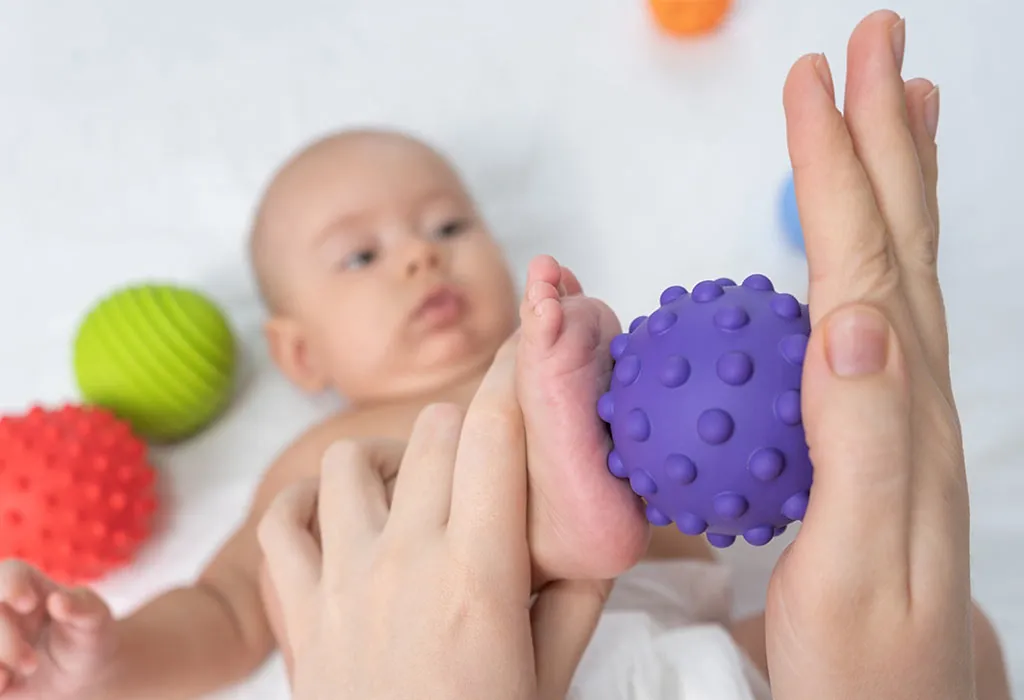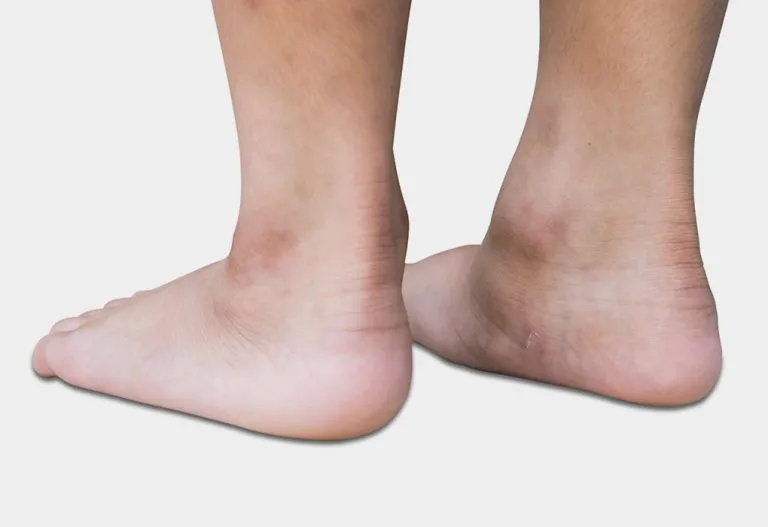4 Months Old Baby Care – Useful Tips That Help

At four months of age, your baby might slowly be evolving to manifest his unique personality traits. You can gauge what makes him happy and how he likes things in general. Sleeping and feeding patterns will begin to form, and that will help you predict your baby’s requirements and then, accordingly, provide for them. Some days, this may seem easy, while some days can prove no less than a challenge for taking care of a 4-month-old baby.
Other prominent developments may include developing close vision and eye-hand coordination, rolling onto his sides, carrying his hands to his mouth, shake toys when holding them in his hands. Your baby may begin to give responses to affection like smiling at people or copying the movements and facial expressions of others. He could also start babbling and exhibit different emotions, like being sad, happy, or irritable. All of these will need you to take care of the baby slightly differently than before. Read on to be prepared for your baby’s requirements.
How to Take Care of a 4-Month-Old Baby?
With each passing day, you may be gaining more experience in taking care of your four-month-old baby. It can be quite a task at times. Here are some of the best baby care tips for 4-months-old that can come in handy:
1. Feeding Your Baby
WHO suggests your baby should be essentially on breast milk exclusively for the first six month of their life, as breast milk provides complete nourishment (1). There is no hurry to introduce solids yet. For working mothers, starting bottle feeding at this stage can be a good idea. You can put pumped-up breast milk in a bottle and try feeding your baby sometimes.
2. Sleeping Patterns
Try to work out a consistent routine for your baby’s naps and sleep timings for bedtime. You may like to avoid rocking your baby to sleep so that he can learn to relax on his own and fall asleep. 4 months is also a time for sleep regression episodes. This may cause them to deter from their usual sleeping patterns and may take extra time and help in soothing back to sleep (2).
3. Prevent Falls
Your baby would be kicking, rolling onto his side or from the stomach to back. Make sure there are no objects around him that he could kick and hurt himself. Also, always put pillows or cushions around your baby if leaving him alone for a while to safeguard him against any likely falls.
4. Immunisation
Remember to fix an appointment with the doctor for your baby’s scheduled vaccination. According to the Indian Pedatrics and CDC, at 4 months, your baby’s pediatrician may align your baby for DTap vaccine for diphtheria, tetanus, and whooping cough (pertussis), Hib vaccine for Haemophilus influenzae type, Pneumococcal conjugate vaccine for pneumococcal disease, and polio vaccine, rotavirus vaccine (3) (4).Try diverting your baby’s attention when he is getting a shot. Afterwards, you can soothe the baby by gently rocking or swaddling him. After the vaccination, your baby may become irritable or develop a mild fever. Talk to your doctor regarding these concerns and seek the necessary guidance.
5. Dealing With Diaper Rash
You can prevent diaper rash by changing the diaper the moment it gets soiled, keeping the baby diaper-free for some time every day and maintaining good hygiene. Bacteria multiply in moist places. Ensure the diaper area is clean and dry. Use a medicated baby-safe diaper rash cream.
6. Massages
Indulge your baby in daily massage as it will help in developing his back muscles, the formation of the spine’s thoracic curvature and promote his overall growth. A gentle massage will not only calm your baby but can also help him sleep well. It is also a wonderful way to express your affection and care and to bond with your baby. Avoid massaging your baby immediately after a meal.
7. Teething
Your baby could start teething during this phase (5). He would begin to drool a lot or chew on objects. He is also likely to put all the things he can lay his hands on into his mouth. Therefore, be careful with the toys you provide your baby with for playing, lest they become choking hazards. You can also get your baby soft teething rings.
8. Car Safety
Always put your baby in an infant car seat carefully and place it in the back seat while travelling in a car. You should not leave your baby unaccompanied and unaided in the car.
9. Baby Activities
Baby activities are also essential. Go for activities that encourage your baby to move his limbs and fingers and also exercise his vocal cords. Tummy time is also important for a 4-month-old baby.
10. Skin Care
A baby’s skin may take time to adjust to the outside environment after being cooped up in the mother’s womb for nine months, so it is common for skin conditions, like cradle cap, baby acne, and eczema, to crop up (6). Make sure to use only dermatologist-approved baby skincare after consulting your doctor.
11. Daily Routine
It is important to present the best behaviour in front of babies, as children are like sponges. In fact, the American Psychological Association suggest giving no screen time to babies until they are 18 months of age (7). While caring for a 4-month-old baby, avoid all kinds of gadgets and stimulating devices.
When to See a Doctor?
Keeping an eye on your child in their budding years is extremely important. If you see any of the following, you must consult a doctor without any delay:
- Show no facial expressions, like smiling or laughing
- Cannot hold their head up on their own
- Do not visually recognize you or your partner
- Don’t react to loud sounds
- Cannot follow nearby objects with their eyes
- Avoid making eye contact when close to you
FAQs
1. What are the notable height and weight developments in a 4-month-old baby?
Your baby during this phase will display notable development. He would start to gain weight, which implies that he is getting the required nourishment. The height and weight of the baby are highly variable and depend on his growth. But, if the growth has been normal, the average height of a 4-month-old baby is usually 63.8 cm for boys and 62 cm for girls. The average weight generally hovers around 7 kg for boys and 6.4 kg for girls.
2. What milestones a 4-month-baby achieves?
By 4 months, your baby is likely to hold his head steady without any support and push onto their elbows or forearms when they are on tummy, make a connection with you by smiling, chuckling, or making sounds like oooo”, “aahh” to get your attention (8) (9). They will have an improved hand-eye coordination and clearer vision as they grow (10). UNICEF suggests that by months, babies start signalling about their hunger by putting their hands near their mouth (11).
3. Can I put indoor plants in the baby’s room?
Yes, absolutely! In fact, keeping indoor plants in the house will detox the indoor air by removing harmful pollutants like formaldehyde which is usually found in furniture and ammonia which is commonly found in cleaning products. Bring in air-purifying plants like spider plant or philodendrons, and your baby’s lungs will thank you.
When it comes to taking care of your baby, a mother’s instinct never fails. Subtle cues from your baby may guide you to provide the care he needs. In case you feel something is inappropriate, never shy from seeking the advice of your doctor.
References/Resources:
1. Exclusive breastfeeding for optimal growth, development and health of infants; WHO; https://www.who.int/tools/elena/interventions/exclusive-breastfeeding
2. Understanding and Navigating Sleep Regressions; Penn Medicine Lancaster General Health; https://www.lancastergeneralhealth.org/health-hub-home/motherhood/the-first-year/understanding-and-navigating-sleep-regressions
3. Kasi. S. G, et al.; Indian Academy of Pediatrics (IAP) Advisory Committee on Vaccines and Immunization Practices (ACVIP): Recommended Immunization Schedule (2020-21) and Update on Immunization for Children Aged 0 Through 18 Years; Indian Pediatrics; https://www.indianpediatrics.net/jan2021/jan-44-53.htm; November 2020
4. Vaccines at 4 Months; CDC; https://www.cdc.gov/vaccines/parents/by-age/months-4.html
5. Teething Tots; Nemours KidsHealth; https://kidshealth.org/en/parents/teething.html
6. Skin Conditions in Children; Cleveland Clinic; https://my.clevelandclinic.org/health/diseases/6951-skin-conditions-in-children
7. Pappas. S; What do we really know about kids and screens?; American Psychological Association; https://www.apa.org/monitor/2020/04/cover-kids-screens; April 2020
8. Important Milestones: Your Baby By Four Months; CDC; https://www.cdc.gov/ncbddd/actearly/milestones/milestones-4mo.html
9. Infant development: Milestones from 4 to 6 months; Mayo Clinic; https://www.mayoclinic.org/healthy-lifestyle/infant-and-toddler-health/in-depth/infant-development/art-20048178
10. Your baby’s growth and development – 4 months old; Pregnancy birth & baby; https://www.pregnancybirthbaby.org.au/babys-growth-and-development-4-months-old
11. Your baby’s developmental milestones at 4 months; UNICEF; https://www.unicef.org/parenting/child-development/your-babys-developmental-milestones-4-months#warning-signs
Also Read:
4 Months Old Baby Developmental Activities
4 Months Old Baby Developmental Milestones
4 Months Old Baby Growth and Development
Was This Article Helpful?
Parenting is a huge responsibility, for you as a caregiver, but also for us as a parenting content platform. We understand that and take our responsibility of creating credible content seriously. FirstCry Parenting articles are written and published only after extensive research using factually sound references to deliver quality content that is accurate, validated by experts, and completely reliable. To understand how we go about creating content that is credible, read our editorial policy here.

































.svg)


















